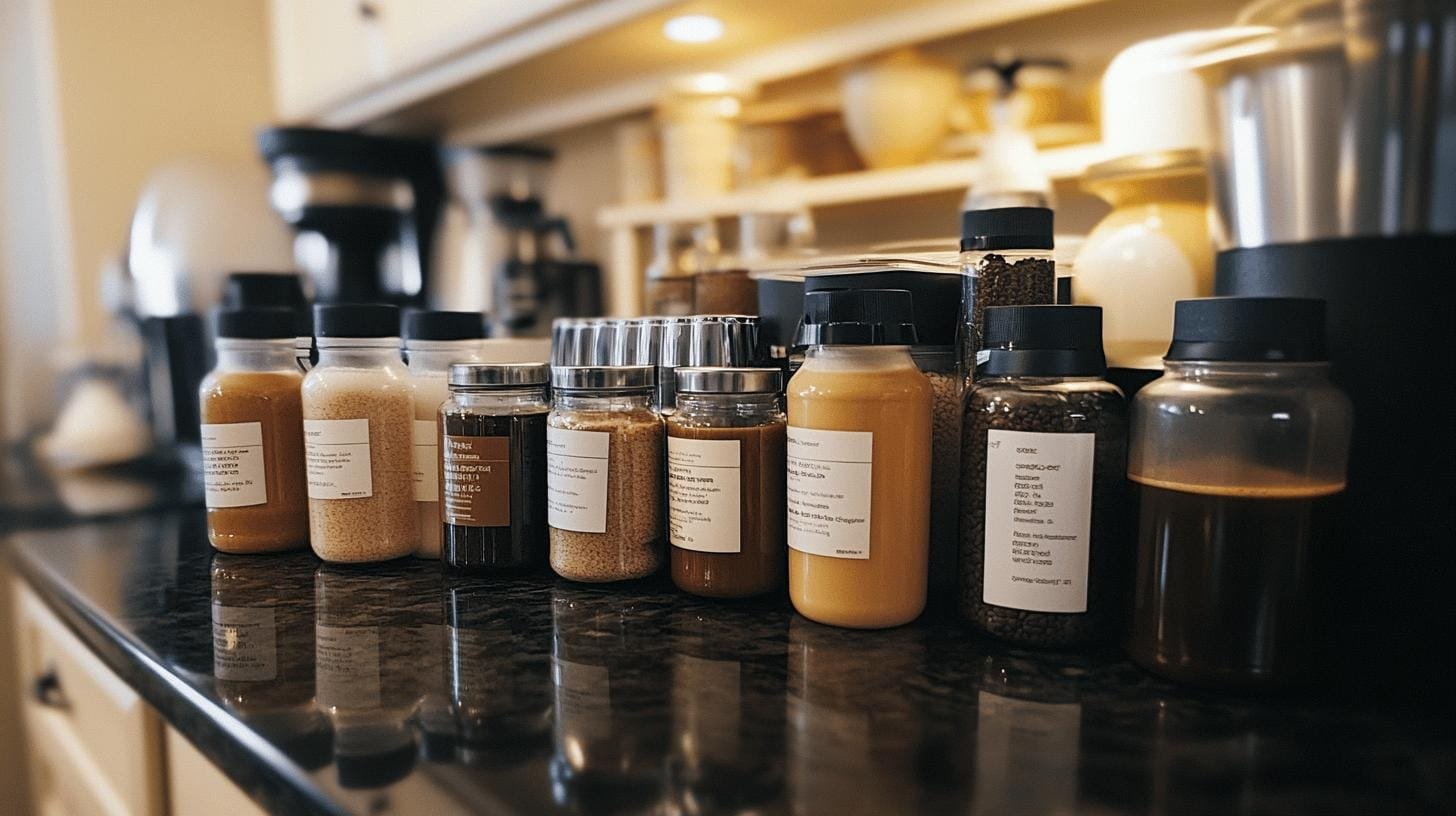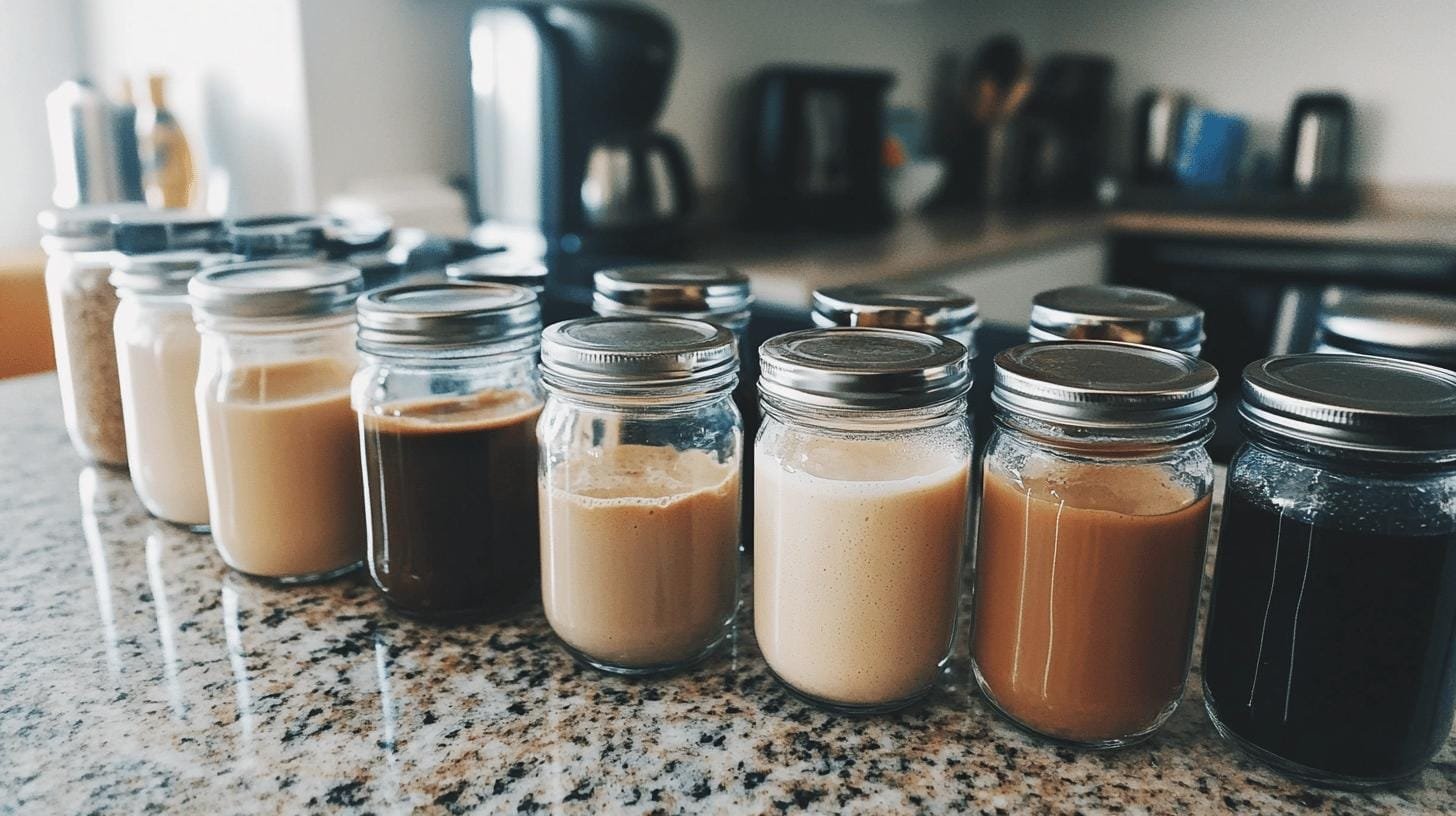
Artisanal Rituals for a Memorable Customer Experience
How can brands create a more balanced and memorable customer experience by blending artisanal product quality with thoughtful everyday rituals that keep people coming back?

Is your beloved coffee creamer secretly sabotaging your health? For many coffee enthusiasts, the allure of a creamy, flavorful addition to their morning brew is irresistible.
However, this popular indulgence might come with hidden health risks. Loaded with added sugars, artificial flavorings, and unhealthy fats, coffee creamers can contribute to weight gain and chronic diseases like diabetes and heart disease.
Before you pour another splash into your cup, is coffee creamer bad for you? Well, let’s find out.
Coffee creamers often contain added sugars, artificial flavors, and unhealthy fats. These ingredients can contribute to weight gain and increase the risk of chronic diseases like diabetes and heart disease. Many non-dairy creamers include partially hydrogenated oils, a source of trans fats known to raise LDL (bad) cholesterol and lower HDL (good) cholesterol.
Flavored creamers may also contain artificial sweeteners like sucralose or aspartame, which can negatively affect gut health and metabolism. Some creamers have additives and preservatives such as carrageenan and sodium stearoyl lactylate, which are linked to digestive issues and inflammation. Additionally, many creamers are high in calories; one tablespoon can have around 35-50 calories, which adds up if used daily.
While occasional use may not be harmful, regular consumption, especially in large amounts, can have negative health effects.

Coffee creamers are mainly composed of water, oils, and sugar. Despite being marketed as non-dairy, many still contain milk-derived proteins. Non-dairy creamers often use corn syrup solids and vegetable oils, which don’t provide the same nutritional benefits as whole milk or cream.
One concerning ingredient is trans fats, particularly those listed as “partially hydrogenated oils.” These fats are linked to increased LDL cholesterol and a higher risk of cardiovascular disease.
While coffee creamers offer convenience and flavor enhancement, their potential health risks shouldn’t be overlooked.
Dairy creamers are typically made from milk or cream, providing a more natural option. Non-dairy creamers often contain hydrogenated oils and other additives to mimic the texture and taste of dairy.
Dairy creamers provide a natural source of calcium and other nutrients. However, they can be high in saturated fats.
Non-dairy creamers suit individuals avoiding dairy but come with their health concerns.
Choosing between dairy and non-dairy creamers depends on individual health needs and dietary restrictions. For a healthier coffee option, consider alternatives like regular milk, almond milk, or oat milk, which generally have fewer calories and a better fat profile.

Healthier alternatives to traditional coffee creamers often have fewer calories and better fat profiles. These substitutes can be a significant improvement over conventional creamers filled with added sugars, artificial flavors, and trans fats.
By choosing healthier alternatives, you can enjoy your coffee without compromising your health.
Experts generally agree that moderate consumption of coffee creamer may not pose significant health risks. However, excessive use can contribute to negative outcomes like weight gain, diabetes, and cardiovascular issues.
Nutritionists advise checking labels and avoiding products with unrecognizable or hard-to-pronounce ingredients. This practice helps minimize exposure to harmful additives that can trigger health issues like eczema, asthma, hormone imbalances, thyroid problems, and skin rashes.
Moderation is key in using coffee creamers. While occasional use is unlikely to cause significant health issues, regular and high consumption can be problematic. Experts recommend opting for whole, natural foods over processed products for better overall health.
Exploring whether coffee creamer is bad for you reveals significant health risks, including weight gain, high cholesterol, and adverse effects on gut health and metabolism. Coffee creamers often contain harmful ingredients like added sugars, artificial flavorings, and trans fats.
Opt for healthier alternatives such as milk or plant-based options.
Remember, moderation is key. Enjoy your coffee mindfully to maintain a balanced, healthier lifestyle.
Coffee creamers contain added sugars, unhealthy fats, and artificial ingredients, contributing to weight gain and chronic diseases like diabetes and heart disease when consumed excessively.
Coffee creamers often contain trans fats, which raise bad cholesterol (LDL) and lower good cholesterol (HDL), increasing the risk of heart disease.
Starbucks creamer includes added sugars and artificial ingredients that may be harmful if consumed in large quantities regularly.
Sugar-free creamers often contain artificial sweeteners like sucralose or aspartame, which may negatively affect gut health and metabolism.
Moderate consumption of coffee creamer is generally safe, but daily use in large quantities may lead to health issues such as weight gain and heart disease.
Healthier creamer options include using milk, plant-based milks like almond or oat milk, and organic creamers with fewer additives and lower sugar content.

How can brands create a more balanced and memorable customer experience by blending artisanal product quality with thoughtful everyday rituals that keep people coming back?

Independent coffee shops have always been about more than caffeine—they’re hubs of creativity, connection, and care. As café culture continues to evolve, new trends are

Introduction Independent cafes win when they feel like the neighborhood’s living room and operate with the discipline of a great kitchen. Below is a quick

Discover how top specialty coffee brands create lasting loyalty through storytelling, sourcing, and community connection. Real tips from 6 industry experts.

Discover the ultimate showdown between two beloved coffee brewing methods: the French press and Chemex. Explore how each technique caters to distinct palates, with the French press delivering bold flavors and the Chemex presenting a bright, clean taste.

Unlock the secrets to brewing the perfect cup of coffee with our comprehensive guide on using a coffee scale. Discover how precise measurements enhance flavor and consistency while eliminating bitterness.

Discover how water temperature plays a vital role in brewing the perfect cup of coffee. This article delves into the ideal temperature range of 195°F to 205°F for optimal flavor extraction, enhancing the enjoyment of high-quality beans.

Discover the world of curated specialty coffee bundles, perfect for enthusiasts seeking quality and craftsmanship. This article explores the benefits of ethically sourced, small-batch beans from brands like Equipoise Coffee, offering diverse flavor profiles that elevate your brewing experience.

Discover the art of manual brewing to elevate your coffee experience! This article explores various techniques like pour-over, French press, and AeroPress, revealing how they enhance flavor and your connection to every cup.